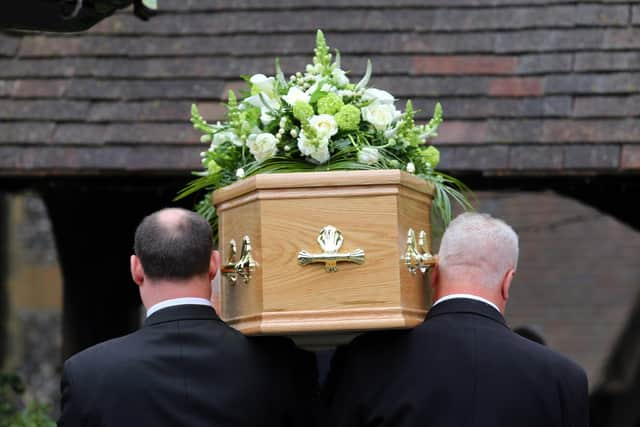Hundreds of Wigan residents 'die in poverty' each year
and live on Freeview channel 276
Charity Marie Curie said it was "shocking" that more than 90,000 people across the UK die while living in poverty annually.
The findings could be an underestimate as research by Loughborough University for the charity analysed data from before the coronavirus pandemic and cost-of-living crisis.


Advertisement
Hide AdAdvertisement
Hide AdThe estimates suggest 594 people in Wigan died in 2019 having experienced poverty in the last year of their life – around 19 per cent of all deaths.
They were among 14,565 deaths in poverty across the North West and almost 93,000 throughout the UK.
More than 15 per cent of the nearly 605,000 people who died in the UK in 2019 are estimated to have experienced poverty in their last year.
Researchers modelled estimates using a combination of data from a survey which followed the lives of thousands of people from 2009 to 2019, and local figures on deprivation.
Advertisement
Hide AdAdvertisement
Hide AdFor most of the findings, the Social Metrics Commission's definition of poverty was used which examines how much someone’s resources, after housing costs, meets their needs – including "inescapable costs" such as childcare and disability.
Juliet Stone, from the Centre for Research in Social Policy at Loughborough University, said: "The number of people dying in poverty has almost certainly risen even further since the period covered by our research and will only get higher in the coming months as the cost of living crisis deepens.”
They found 68,000 (around three-quarters) of the people who died experiencing poverty were of pension age – representing 13 per cent of the more than 500,000 deaths among this group.
Around 25,000 were of working age, equating to 28 per cent of 90,000 deaths in this cohort – making them more than twice as likely to die in poverty than those past pension age.
Advertisement
Hide AdAdvertisement
Hide AdThe research suggests women and people from minority ethnic groups are particularly vulnerable to poverty.
Of the 594 deaths in poverty in Wigan in 2019, 453 are estimated to be pensioners (17 per cent), and 141 working age (25 per cent).
Marie Curie is calling for urgent action to give terminally ill people of working age access to their state pension, and warned the benefits system is failing to keep working-age people out of poverty at the end of their lives.
Chief executive Matthew Reed said: "No-one wants to imagine spending the last months of their life shivering in a cold home, struggling to feed themselves, their children, and burdened with the anxiety of falling into debt.
"But for 90,000 people a year that is their reality.
Advertisement
Hide AdAdvertisement
Hide Ad"We are staggered to see the scale of poverty among dying people – it is shocking."
The Department of Work and Pensions said those nearing the end of their lives can get fast-track access to benefits.
A spokesman said policies announced in the Queen's speech meant more people at the end of life will be able to access benefits earlier.
He added: “The Government is taking decisive action to ease pressures on the cost of living, including spending £22 billion across the next financial year to support people with energy bills and cut fuel duty, and our £1 billion household support fund is helping the most vulnerable with essential costs.”
